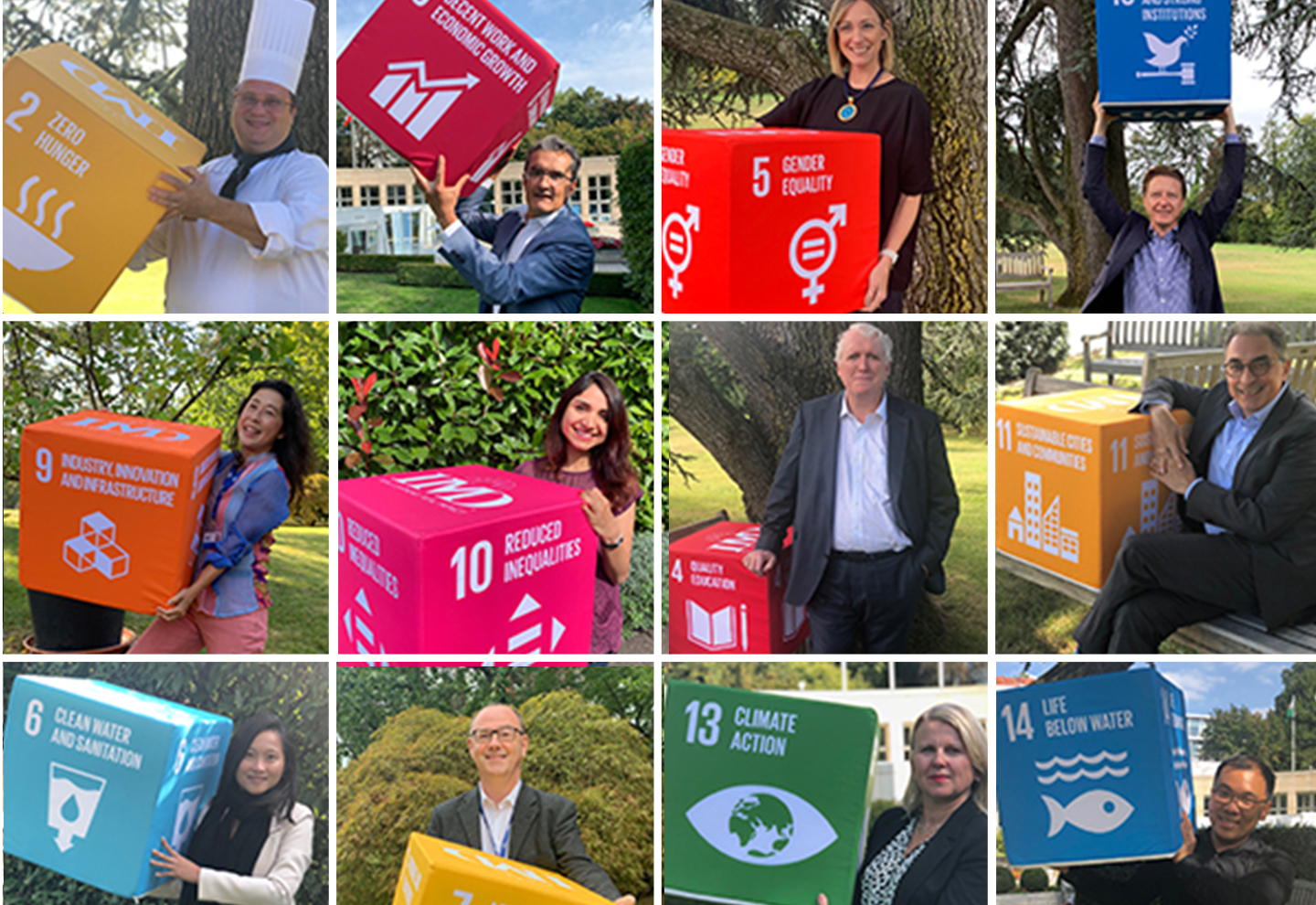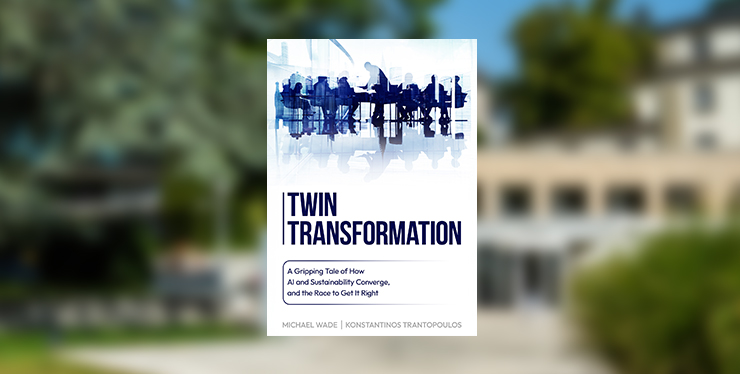
Joining forces for the world we want
The United Nations Sustainable Development Goals (SDGs) represent the world we want to live in.
It’s a world without poverty or hunger; where health, wellbeing and quality education are no longer the privilege of a few; and gender equality is not just a dream. It’s a world where we can live within our planetary boundaries, and decent work is the standard for all.
Achieving the SDGs, 17 Global Goals for the next decade, requires systemic changes across sectors, not just international aid. The SDGs are mobilizing private capital to contribute to impact hand-in-hand with governments and civil society.
Heads of state at the UN General Assembly will review progress towards the SDGs during Global Goals Week from 23-27 September, a week of events around the world aimed at identifying actions for accelerating collaboration towards achieving these ambitious aims.
Private sector interest in the SDGs is ramping up on the backdrop of concerns about the climate crisis and inequality, driving demands for new inclusive economic models and social innovation. This pressure is demonstrated through global climate protests by school children like Greta Thunberg, demands for environmental policies by workers at companies like Amazon, and shifts in consumer preferences towards sustainable brands and plant-based products like Beyond Burger. These are not your typical activists.
The SDGs provide a framework for translating grand global challenges into market opportunities.
The private sector can only thrive in a society that is flourishing. While, achieving the SDGs is impossible without business, long-term business success, in turn, also depends on collaborating with sectors on achieving the SDGs.
Here are four reasons why the private sector should engage with the SDGs:
1- Identifying opportunities:
The SDGs help translate global needs into investment opportunities where private money can fund the gap that exists in the absence of government funding. The Better Business, Better World report by the Business and Sustainable Development Commission identified at least $12 trillion of market value that could be opened up in sectors such as food and agriculture, cities, energy and health.
Research shows that companies that focus on materiality, narrowing their focus on high-impact sustainability issues related to their core business, are more innovative and perform better. Companies that have mapped their practices to the SDGs include Volvo, Unilever, Panasonic and Siemens.
2- Driving Impact:
Increasingly, investor stakeholders want to see how their capital is being used to positively affect the bigger picture. The SDGs can help institutional investors transition from a “cause no harm” investment approach to one that focuses on long-term development outcomes, achieving targets that have been globally agreed and quantitatively defined.
Global investment firm AllianceBernstein is creating a unique climate risk and investment performance curriculum for its finance professionals who handle its $581 billion in assets under management. All investment teams at AB will learn how to evaluate companies’ risks and opportunities associated with rising sea levels, wildfire hazards, predictive modelling for extreme weather and other potential consequences of climate change.
Some, such as Dutch pension managers PGGM and APG, are integrating the SDGs into their investment decision making. Indexes are also aligning to the SDGs: the MSCI ACWI Sustainable Impact Index includes companies that derive at least 50% of their revenue from products and services that address five actionable themes mapped to the SDGs. FTSE Russell’s ESG Ratings, while S&P Dow Jones Indices are contributing to research and indices relatedto the SDGs.
The UN Global Compact, representing 9,000 companies and the Principles for Responsible Investment, representing, 1,700 investors, encourage their members to support the SDGs. The first general-purpose SDG-linked US$ 1.5 billion bond was released by Enel in September and was almost three times oversubscribed.
3- Managing Risk:
The SDGs are guiding future government regulations and policies. As a result, sector alliances like Food and Beverage companies are partnering to ensure fair and safe supply chains and reduce risk, linking to SDGs ‘No Hunger’, ‘Life on Land’ and ‘Partnership for the Goals.’ For example, Unilever, the world’s biggest tea company, aims to sustainably source all of its tea by 2020 by working with certification bodies like Rainforest Alliance.
The maker of Lipton Tea is also using a pilot blockchain and other data technologies to create a data system for tea farmers to create standardized information about their product, its quality and price available to all parties, making it traceable and transparent. The project, in collaboration with Barclays, BNP Paribas, Rabobank and Standard Chartered, has the potential to use the data to offer preferential access to credit and lower the cost of working capital.
4- Fuelling Collaboration:
The private sector is committing to achieving the SDGs through multi-stakeholder partnerships with exponential impact. Unique forms of collaboration are emerging across sectors and even among competitors.
It’s about moving from a linear ‘take-make-waste’ economy to a regenerative circular and inclusive economy – using systems thinking to ensure responsible sourcing, manufacturing, distribution and recycling and reuse throughout the supply chain. The New Plastics Economy Global Commitment led by the Ellen MacArthur Foundation has signed up more than 400 companies to a vision to stop plastic waste and pollution at source by applying circular economy principles.
Still, to succeed in reaching the goals, government, civil society and business must build more bridges to build a common language and accelerate their engagement. Previously, global challenges were couched only in the language of international aid. A new era has begun where the language of business and investors must also be integrated into the conversation. While the drivers of different stakeholders may differ, their sense of purpose coalesces around the SDGs to create real impact.
Professor Vanina Farber holds the elea Chair for Social Innovation at IMD Business School. Natalia Olynec is Sustainability Partner at IMD.
Research Information & Knowledge Hub for additional information on IMD publications
In today’s boardrooms, two themes dominate: rapid technological advancement and the growing urgency of environmental accountability. But a new source of competitive advantage is emerging, not from A.I. or sustainability alone, but from the deliber...

In President Trump’s second term, a variety of executive actions have reversed social progress. Withdrawing from the Paris Climate Agreement presents a significant challenge to bending the global emissions curve since it is one of the world’s larg...
We systematically review business research concerning the planetary boundaries framework: A natural science framework that identifies nine Earth system boundaries that govern the safe operating space for humanity. Ten years after the introduction ...
Environmental claims are becoming increasingly common in corporate disclosures, but whether they correspond to genuine environmental action rather than greenwashing remains unclear. This paper explores the relationship between companies' environme...
in I by IMD
Research Information & Knowledge Hub for additional information on IMD publications
Research Information & Knowledge Hub for additional information on IMD publications
in I by IMD
Research Information & Knowledge Hub for additional information on IMD publications
in I by IMD
Research Information & Knowledge Hub for additional information on IMD publications
in I by IMD
Research Information & Knowledge Hub for additional information on IMD publications
Research Information & Knowledge Hub for additional information on IMD publications
Research Information & Knowledge Hub for additional information on IMD publications
in Stanford Social Innovation Review Online 2 June 2025
Research Information & Knowledge Hub for additional information on IMD publications
in Journal of Management Studies June 2025, vol. 62, no.4, pp. 1811-1846, https://doi.org/10.1111/joms.13150
Research Information & Knowledge Hub for additional information on IMD publications
in Sustainable Development 29 May 2025, ePub before print, https://doi.org/10.1002/sd.3544
Research Information & Knowledge Hub for additional information on IMD publications







